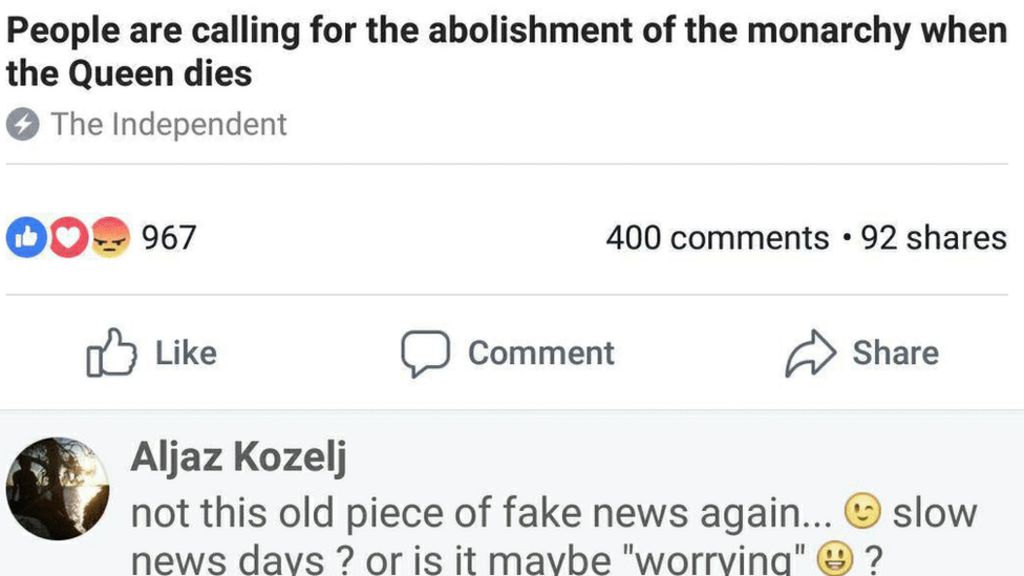Facebook's Fake News Experiment Backfires

 Image copyright
Facebook
Image copyright
Facebook
A Facebook test that promoted comments containing the word fake to the top of news feeds has been criticised by users.
The trial, which Facebook says has now concluded, aimed to prioritise "comments that indicate disbelief".
It meant feeds from the BBC, the Economist, the New York Times and the Guardian all began with a comment mentioning the word fake.
The test, which was visible only to some users, left many frustrated.
The comments appeared on a wide range of stories, from ones that could be fake to ones that were clearly legitimate. The remarks, which would appear at the top of the comments section, came from a variety of people but the one thing that they had in common was the word fake.
"Clearly Facebook is under enormous pressure to tackle the problem of fake news, but to question the veracity of every single story is preposterous," said Jen Roberts, a freelance PR consultant.
"Quite the reverse of combating misinformation online, it is compounding the issue by blurring the lines between what is real and what isn't. My Facebook feed has become like some awful Orwellian doublethink experiment."
Many on Twitter also expressed annoyance.
In a statement, Facebook told the BBC: "We're always working on ways to curb the spread of misinformation on our platform, and sometimes run tests to find new ways to do this. This was a small test which has now concluded.
"We wanted to see if prioritising comments that indicate disbelief would help. We're going to keep working to find new ways to help our community make more informed decisions about what they read and share."
Facebook has been under enormous pressure to deal with the issue of fake news since it was singled out as one of the main distribution points for hoax stories during the US presidential election.
In August it promised to step up its efforts to fight fake news by sending more suspected false stories to fact-checkers.
It also launched a new feature that published alternative news links beneath suspect articles.
From Chip War To Cloud War: The Next Frontier In Global Tech Competition
The global chip war, characterized by intense competition among nations and corporations for supremacy in semiconductor ... Read more
The High Stakes Of Tech Regulation: Security Risks And Market Dynamics
The influence of tech giants in the global economy continues to grow, raising crucial questions about how to balance sec... Read more
The Tyranny Of Instagram Interiors: Why It's Time To Break Free From Algorithm-Driven Aesthetics
Instagram has become a dominant force in shaping interior design trends, offering a seemingly endless stream of inspirat... Read more
The Data Crunch In AI: Strategies For Sustainability
Exploring solutions to the imminent exhaustion of internet data for AI training.As the artificial intelligence (AI) indu... Read more
Google Abandons Four-Year Effort To Remove Cookies From Chrome Browser
After four years of dedicated effort, Google has decided to abandon its plan to remove third-party cookies from its Chro... Read more
LinkedIn Embraces AI And Gamification To Drive User Engagement And Revenue
In an effort to tackle slowing revenue growth and enhance user engagement, LinkedIn is turning to artificial intelligenc... Read more

